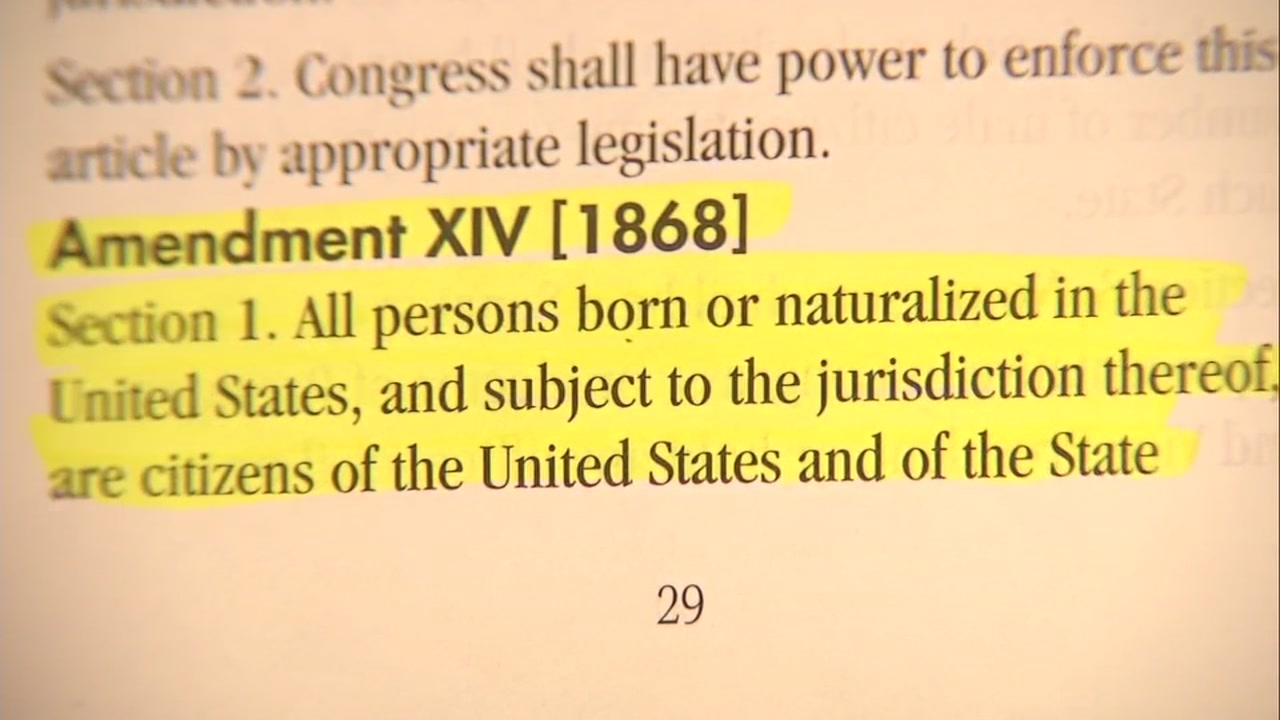Understanding the 14th Amendment: What is Birthright Citizenship?
The 14th Amendment to the United States Constitution is a pivotal part of American law that has shaped discussions around citizenship and civil rights. Particularly, it addresses issues of birthright citizenship, which refers to the principle that anyone born on U.S. soil is automatically granted citizenship, regardless of their parents’ immigration status. In this blog post, we will delve into the intricacies of the 14th Amendment, its implications on birthright citizenship, and its relevance today.
What is Birthright Citizenship?
Birthright citizenship is rooted in the principle of jus soli (right of the soil), which grants citizenship based on birthplace. The 14th Amendment, ratified in 1868, clearly states in its Citizenship Clause: “All persons born or naturalized in the United States, and subject to the jurisdiction thereof, are citizens of the United States and of the State wherein they reside.” This clause has become a cornerstone for interpreting who qualifies for citizenship in the U.S.
The Historical Context of the 14th Amendment
Understanding the history of the 14th Amendment is essential to grasp its implications fully. The amendment was introduced during the Reconstruction Era, a time when the U.S. sought to rebuild and redefine itself following the Civil War. Aimed at addressing the needs and rights of formerly enslaved people, the amendment was a response to the Black Codes that sought to limit the freedoms of African Americans.
One of the main fears of the time was that newly freed slaves and their descendants would not receive equal protection under the law. Therefore, the 14th Amendment included important provisions, including equal protection and due process clauses, ensuring that all citizens would enjoy the same rights.
The Significance of the Citizenship Clause
The Citizenship Clause of the 14th Amendment has been a vital component in numerous legal battles over citizenship rights. Its most significant aspect is that it provides citizenship to anyone born in the U.S., making it an automatic right. This has led to the U.S. becoming one of the few countries in the world that practices unconditional birthright citizenship.
Beyond its historical importance, the Citizenship Clause has practical implications today. It means that children born in the U.S. to undocumented immigrants, diplomats, tourists, and others are granted citizenship, which is a point of contention in contemporary immigration debates.
Recent Debates on Birthright Citizenship
In recent years, birthright citizenship has been a hot topic among lawmakers and public figures. Notably, President Donald Trump made headlines in 2018 when he stated his intention to sign an executive order to end birthright citizenship. Such statements ignited significant debate, as many Americans believe that changing this long-standing practice would contradict the Constitution.
According to sources, Trump’s proposal faced opposition from legal experts who pointed out that repealing birthright citizenship would require a constitutional amendment, rather than an executive order. An article by ABC7 News outlines these discussions and how they reflect broader concerns regarding immigration policy and human rights in the U.S.
The Legal Framework Surrounding Birthright Citizenship
The legal foundation of birthright citizenship derives from both the 14th Amendment and numerous Supreme Court rulings. These rulings have affirmed the rights established by the amendment, delineating the boundaries and responsibilities of citizenship. For example, in United States v. Wong Kim Ark (1898), the Supreme Court ruled that a child born in the U.S. to Chinese parents was a citizen, reinforcing the principle of jus soli.
This understanding has not only shaped legal interpretations but has also influenced public policy and immigration practices. As debates continue, understanding this legal context is crucial for making informed decisions about future citizenship policies.
What Lies Ahead for Birthright Citizenship?
The future of birthright citizenship remains uncertain as political and social landscapes continue to shift. Issues such as immigration reform, border security, and the rights of children born to undocumented immigrants are gaining prominence in public discussions and legislative agendas. The possibility of amending the Constitution to redefine citizenship raises critical questions about the foundational values of equality and justice that the 14th Amendment seeks to uphold.
Conclusion
In conclusion, the 14th Amendment plays a crucial role in determining the legal status of individuals born in the United States. Birthright citizenship is not just a legal issue; it reflects the values of inclusion and equality in American society. As discussions around immigration and citizenship continue, the principles enshrined in the 14th Amendment will remain at the forefront, representing both the challenges and the aspirations of a diverse nation.
Understanding the complexities of birthright citizenship and the 14th Amendment is essential for anyone engaged in discussions about immigration policy, civil rights, and social justice in America. This knowledge provides the foundation for informed advocacy and dialogue around these critical issues.








